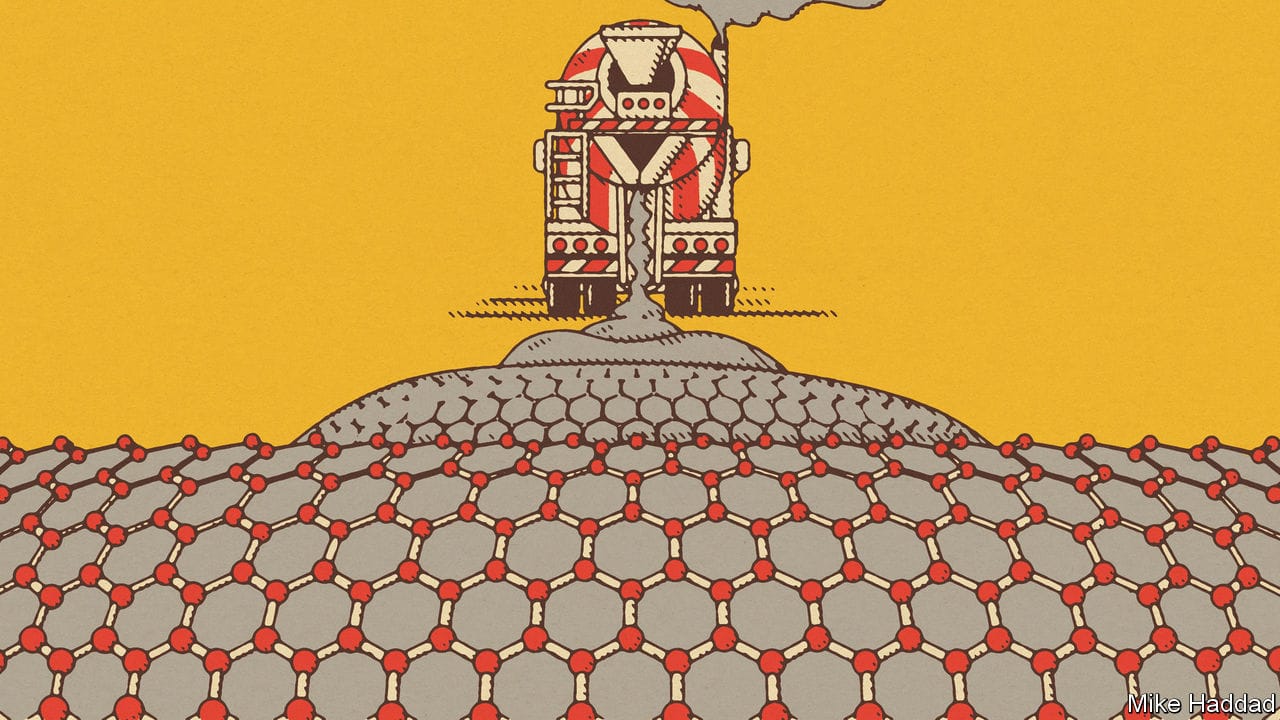- by
- 01 30, 2025
-

-
-
Loading

Loading


the college rowing teams of Britain’s second-oldest university practise their strokes along the River Cam, a grey shipping container sits outside a business unit waiting to be dispatched to Abu Dhabi. Inside is a piece of equipment devised by a firm called Levidian Nanosystems. In a deal announced on May 16th with Zero Carbon Ventures, a firm in the United Arab Emirates, Levidian will ship 500 more such units to the region over the next five years. They will take methane emitted from landfill or being flared off at oil-production sites, and turn it into cleaner-burning hydrogen, along with a pile of fluffy black powder called graphene. Graphene, which consists of monolayers of carbon atoms bonded in a repeating hexagonal pattern, is the thinnest known material. It was isolated in 2004 at the University of Manchester by and Konstantin Novoselov, who went on to win a Nobel prize for their discovery.